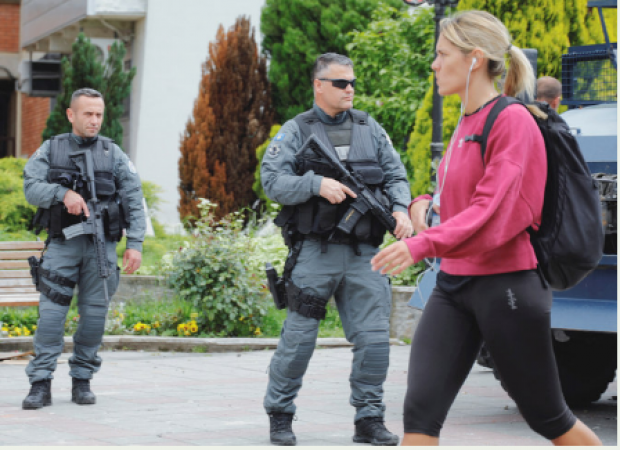
Brussels: A day after Kosovo's government forcibly entered municipal buildings to install mayors in ethnic Serb areas in the country's north, NATO urged Kosovo to reduce tensions with Serbia on Saturday.
Serbia's army was placed on full combat alert and units were moved closer to the border as a result of clashes that took place on Friday between Kosovan police and protesters opposed to the ethnic Albanian mayors.
Transatlantic military alliance spokeswoman Oana Lungescu wrote on Twitter, "We urge the institutions in Kosovo to de-escalate immediately and call on all parties to resolve the situation through dialogue." She promised to maintain vigilance for KFOR, the 3,800-person NATO-led peacekeeping mission in Kosovo.
Also Read: Watch! American Lawmakers to unveil Taiwan war to-do list
In the country's north, where heavily armed police forces in armoured vehicles were guarding municipal buildings, the situation was still tense.
Albin Kurti, the prime minister of Kosovo, defended the police's escorting of the new mayors the day before.
"Those who win democratic elections have the right to take office without being intimidated or threatened. Additionally, Kurti stated on Twitter on Saturday that it is the citizens' right to receive services from those elected officials.
The actions of Kurti's government in the north, according to US Secretary of State Antony Blinken, "unnecessarily escalated tensions, (were) undermining our efforts to help normalise relations between Kosovo and Serbia and will have consequences for our bilateral relations with Kosovo."
Also Read: AI-powered drone swarms are tested by the anti-China bloc
Nearly ten years after the end of the conflict there, Serbs in the northern part of Kosovo still regard Belgrade as their capital and reject Kosovo's 2008 declaration of independence from Serbia. More than 90% of the population in Kosovo is ethnic Albanian, with Serbs only making up the majority in the northern part of the country.